The role of a manager in soccer is similar to that of the head coach in football. He oversees the team, the players, the tactics, the transfers and most other aspects of the playing side of a soccer club. They are, put plainly, the deciding factor of the success of the club. Without a good manager, players become disorganized and cannot generate a coordinated attack or put together a strong defensive effort. This is why super teams haven’t always panned out. From PSG’s failures in the Champions League to Chelsea’s and Manchester United’s disastrous Premier League spell, the consistent factor has been a lack of compelling coaching. However, if done correctly, the result is a cohesive team that can act as a serious title contender like Leicester City in 2016. With that in mind, who have been the greatest managers of all time?
Context
Before a list can be generated, some ground rules must be set to determine what qualifies a “great” coach. My list of criteria include trophies, influence, and innovation. Success is a simple category with easily quantifiable numbers in trophies. However, influence and innovation are more speculative as you can’t actually measure them.
The Greatest Managers of All Time
1. Johan Cruyff
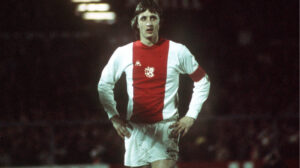
Johan Cruyff was a Dutch soccer player and manager who played for Barcelona and Ajax between 1964 and 1978. He won the Ballon d’Or three times and also the Golden Ball at the 1974 World Cup. He managed Barcelona, and Ajax, winning 15 trophies across seven seasons.
In addition to his titles, Cruyff also reinvented soccer into the sport it is today. He was the first major proponent of “total football” which argued that teamwork, versatility, and positional fluidity are key to winning games. This allows for teams to, among other things, control the ball through unpredictable movements which stretch the spacing of defensive units and creates space for attacking players to score. This impact can be seen in Pep Guardiola’s Manchester City, which utilizes positional play (a component of total football in which players make very specific movements with the intent to break down opposition teams) to undermine the other team’s defensive strategy. Moreover, Cruyff developed rondos, tiki-taka, possession-minded play, third man runs, and high pressing. Coaches across Europe’s top divisions still employ these tactics today.
2. Sir Alex Ferguson
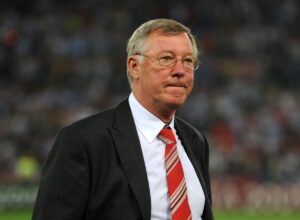
Sir Alex Ferguson managed Manchester United for over two decades. He is widely regarded as the greatest Premier League manager of all time. Additionally, many great players have played under him, including the GOAT (Cristiano Ronaldo), Wayne Rooney, David Beckham, Eric Cantona, Roy Keane, and many others.
Separately, he achieved so much over his career, earning 40 trophies over 27 seasons while only spending $715.55 million in his entire career, less than Pep has spent at City alone ($1,490.56 millions) and averaging $17.9 million per trophy. He also won the first treble in Premier League history.
3. Pep Guardiola
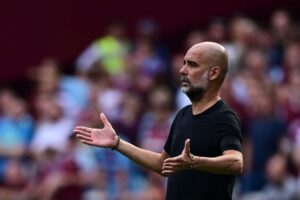
Guardiola has managed Barcelona, Bayern, and Manchester City, all with great success. He is the most winningest manager of all time in terms of trophies and one of the most in terms of win percentage. Additionally, he has inspired a new generation of managers like Mikel Arteta, Eric ten Hag, and Xavi.
However, many argue that his teams would have been able to achieve that level of success without his coaching. His teams have consistently brought in top players from around Europe to execute his vision. For example, Pique, Zlatan, Dani Alves, and Febregas (all world class players before signing with Barcelona) joined Pep in his four year spell at Barca. Moreover, Mario Gotze, Lewandowski, Xabi Alonso, and Kimmich joined him during his three years at Bayern. City have also spent billions on players for him.
To put City’s spending in perspective, the eleven players that started the Champions League final cost Pep a combined $557 million over seven years. This doesn’t include the subs, which add another $281.9, bringing the total value of the squad to $838.9 million. Keep in mind these are just players that have joined since Pep has taken over and that were rostered for the final. The total amount that he has spent at City is the second greatest of any European club since 2016 (behind Chelsea). Pep’s $1.49 billion is $831.25 million more than Real Madrid’s (who have arguably had greater success) and $111.06 million more than PSG. Both in the same time period.
4. Carlo Ancelotti
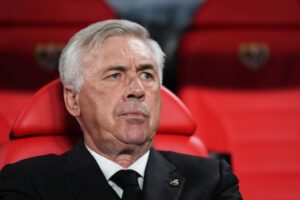
Carlo Ancelotti is one of the most successful managers of all time. He has won the most Champions Leagues titles (4) as well as each of Europe’s top five leagues. He’s also won the Italian, Spanish, German, and English Super Cups as well as four UEFA Super Cups.
However, it isn’t just his wins that set him apart. Ancelotti is arguably the greatest leader when it comes to managers. His book, “Quiet Leadership: Winning Hearts, Minds, and Matches,” illustrates this. He emphasizes the importance of maintaining a calm and composed demeanor as well as building strong relationships with players. His “quiet leadership” approach involves listening, understanding, and empowering individuals to create a cohesive and successful team environment.
Additionally, Ancelotti has one of the most interesting tactical philosophies in the game. Rather than having a set ideology on how to play, Ancelotti gives freedom to his players. This allows Ancelotti to keep opposition players and coaches on their toes because of the unpredictability of his teams.
5. “The Special One”
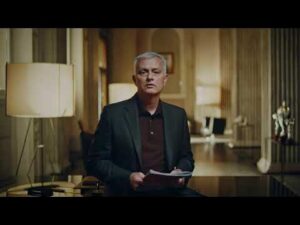
Jose Mourinho is one of five managers to win league titles in four countries, and one of five to win the Champions League at multiple clubs. In 2004, Mourinho lead arguably the greatest dark horse football has ever seen. His FC Porto took the title over Monaco in a stunning 3-0 victory. He later went on to manage Real Madrid, Chelsea, Roma and Manchester United winning major titles at all four clubs.
However, his style of play is often criticized as dirty and unsportsmanlike. He is a master of the dark arts in a sense. By utilizing loopholes in rules and creative timewasting tactics, he almost illegally gives his teams the upper hand. For instance, once he told Sergio Ramos to get a red card to reset his record in the last game of the Champions League group stage. Another time, he told his center backs to run into each other and fake injuries because the ref couldn’t require both to receive treatment off the field.
